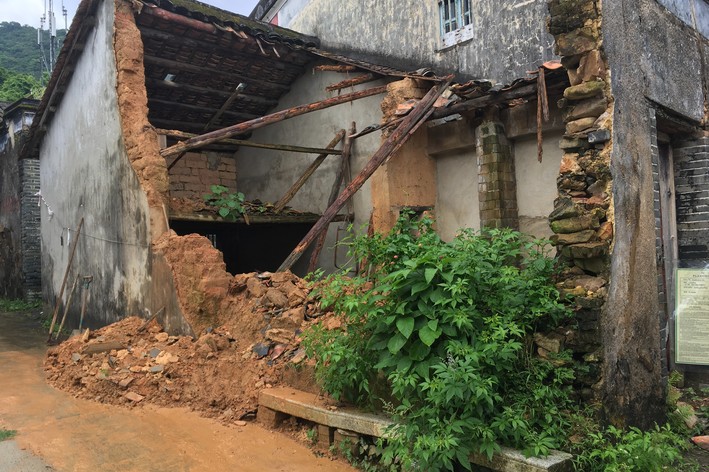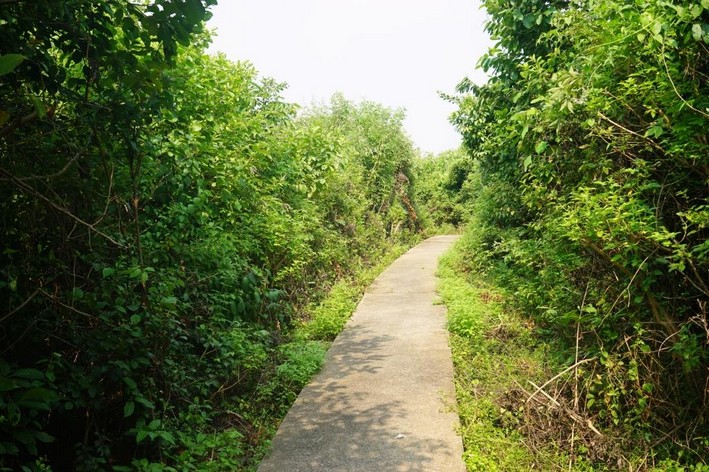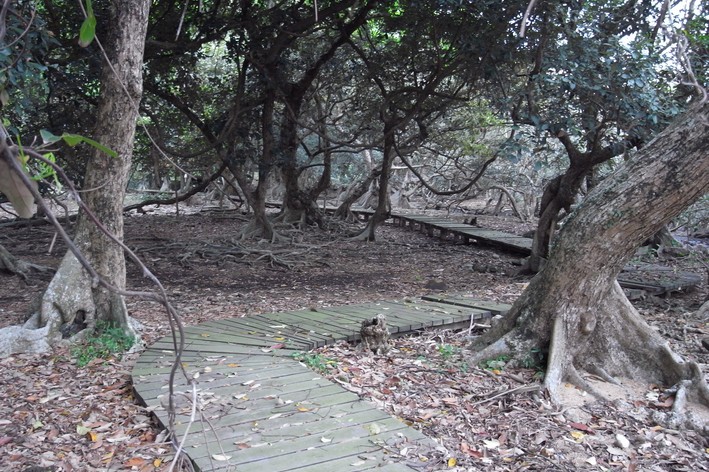Home » Case Example: Challenges in Managing the Lai Chi Wo Cultural Landscape
Introduction to Cultural Landscape Management
Case Example: Challenges in Managing the Lai Chi Wo Cultural Landscape
Village Desertion Following a Wave of Emigration
Since the 1950s, villagers had begun to abandon farming and moved to the urban areas or overseas for a better livelihood. In the late 70s, a substantial part of the surrounding woodland was designated as part of the Plover Cove Country Park, thus further isolated the village and made it inaccessible by vehicles. With no foreseeable development options for the village, the last villager moved out in the 90s. The lack of active management of the village had led to a loss in traditional culture while the natural environment continued to deteriorate. Overgrown weeds and bushes took over the abandoned fields and some traditional village houses have crumbled under rain and wind. Some wetland species typically found in paddy fields, such as the Rice Fish, have gradually disappeared from Lai Chi Wo as the paddy fields dried out.

Limited Capability of the Village to Manage Cultural Landscape
Some villagers return to live in Lai Chi Wo upon retirement. They want to revitalise their home village but do not have sufficient ability to manage the landscape. Traditional knowledge of the villagers managing the village environment is gradually losing. For example, after several decades of living abroad, villager David wished to return and settle down in Lai Chi Wo, but when he tried to resume farming, he found that he had already forgotten the farming techniques. Villagers also lack the professional knowledge in cultural and ecological conservation, so external support are needed. Besides, since most villagers are still living abroad, participation of local residents is limited, especially the younger generations. Moreover, the decision-making procedures at the village are not well-established yet, so it would be hard to reach consensus on certain village management and development issues.

Economic Restructuring and Policy Restrictions
Unless the desolate village is revitalised, it is unlikely for the management of the village’s cultural landscape to become socio-economically viable. However, revitalisation of the village is not easy at all because the rural economy in Hong Kong has been diminishing and there are a number of governmental restrictions to face, including planning regulations on division of stream for irrigation purpose, stringent building requirements for accommodation licence, etc.

Session 4: Case Studies of Initiatives Taken by International and Local Organizations
© 2018 Centre for Civil Society and Governance at The University of Hong Kong
Except where otherwise noted, contents of this e-study is licensed under a Creative Commons Attribution-NonCommercial-ShareAlike 4.0 License.
![]()


